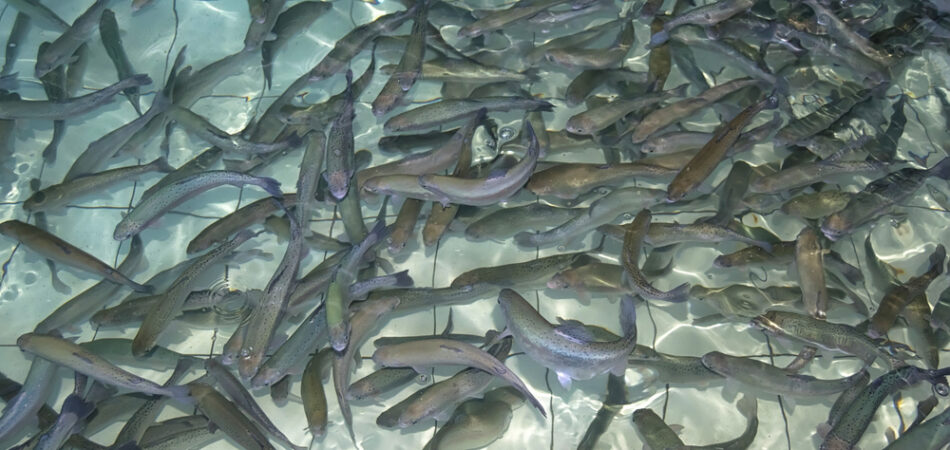
Ponds in Southern Mississippi are vital ecosystems that support a wide range of aquatic life, from bass and catfish to various bait fish species. Maintaining healthy pond water is essential for sustaining a balanced environment where fish thrive, aquatic plants flourish, and algae remain under control. Due to the region’s warm climate, heavy rainfall, and proximity to areas like Louisiana and Mobile, AL, pond management presents unique challenges. Whether you are stocking bass in Mississippi ponds for sportfishing or managing catfish stocking for commercial purposes, proper pond care plays a crucial role in long-term success. In this comprehensive guide, we’ll explore effective strategies for maintaining optimal water quality, supporting healthy fish populations, and preventing common problems that threaten pond ecosystems.
The Importance of Water Quality in Southern Mississippi Ponds
The foundation of a thriving pond lies in maintaining proper water quality. Southern Mississippi’s humid climate, coupled with periodic heavy rains and extended dry spells, creates conditions that can easily destabilize the delicate balance of a pond’s ecosystem. Water quality influences everything — fish growth, plant health, and even the success of stocking programs such as stocking bass in Mississippi ponds or introducing bait fish populations.
One of the first factors to monitor is oxygen levels. Warm waters typical of Southern Mississippi summers hold less dissolved oxygen, which can stress fish, particularly larger species like bass and catfish. Aeration systems, such as fountains or diffusers, help maintain steady oxygen levels and prevent fish kills. Additionally, proper pH balance is critical; ponds should maintain a pH between 6.5 and 9.0 to ensure the health of aquatic life. Frequent testing for ammonia, nitrates, and phosphates can also identify potential nutrient imbalances that may lead to excessive algae growth.
For ponds located near Louisiana or Mobile, AL, rainfall patterns and runoff can introduce unwanted nutrients, debris, and contaminants. These elements not only affect water clarity but can also create imbalances that disrupt native fish populations. Proactive testing and water management reduce these risks and help maintain a healthy aquatic environment.
Effective Fish Stocking Strategies for a Balanced Ecosystem
A healthy pond depends heavily on a balanced fish population. Stocking strategies vary based on your goals, whether it’s creating a trophy bass fishery, managing catfish stocking for food production, or supporting a mixed ecosystem where bait fish thrive. In Southern Mississippi, stocking bass in Mississippi ponds typically involves introducing largemouth bass due to their adaptability and popularity among recreational anglers. However, achieving balance requires pairing bass with complementary species.
Bait fish, such as threadfin shad, fathead minnows, and bluegill, provide the necessary food sources for predator fish like bass and catfish. Without sufficient bait fish populations, predator growth stalls, leading to stunted fish sizes and competition for limited resources. When adding catfish stocking to your pond, it’s important to avoid overstocking since catfish compete directly with bass for food in certain conditions.
Timing also plays a significant role in successful fish stocking. For Southern Mississippi ponds, spring and early fall are optimal periods, as moderate temperatures reduce stress on fish during transportation and acclimation. Additionally, pond owners near Louisiana and Mobile, AL should consider regional weather patterns and coordinate stocking activities to avoid major storm seasons. Partnering with local fisheries experts ensures that stocking ratios are properly calculated based on pond size, water conditions, and long-term management goals.
Managing Algae, Aquatic Plants, and Nutrient Levels
Algae and aquatic vegetation management are crucial components of maintaining a healthy pond in Southern Mississippi. Warm, nutrient-rich waters create ideal conditions for algae blooms, which can quickly deplete oxygen and threaten fish populations. This issue becomes even more pronounced when ponds receive nutrient runoff from nearby farms, lawns, or urban developments, especially in regions bordering Louisiana and Mobile, AL.
Moderate levels of aquatic plants benefit the pond ecosystem by providing shelter for bait fish and stabilizing the shoreline, but excessive growth can choke out open water and hinder fish movement. The key lies in maintaining balance. Mechanical removal, selective herbicide treatments, and biological controls — such as introducing grass carp — can effectively manage vegetation without harming water quality.
Nutrient management is another critical factor. Phosphates and nitrates from fertilizers and livestock runoff can trigger harmful algal blooms, resulting in cloudy water and oxygen depletion. Implementing buffer zones with native grasses around your pond helps filter out excess nutrients before they enter the water. Regular testing and treatment ensure that nutrient levels remain within optimal ranges, protecting fish populations and overall pond health.
Seasonal Challenges and Climate Considerations
Southern Mississippi’s climate plays a significant role in pond management, influencing everything from water quality to fish behavior. Long, hot summers increase evaporation rates and raise water temperatures, which can stress fish and reduce dissolved oxygen levels. This is especially important when managing sensitive species, such as those involved in catfish stocking or bait fish cultivation.
During winter, while temperatures are milder compared to northern regions, cold fronts can still affect pond ecology. Sudden drops in temperature may cause fish stress and slow down feeding activity. For those near Louisiana or Mobile, AL, hurricanes and tropical storms pose unique risks, including flooding, nutrient surges, and debris entering ponds. Preparing for these events by reinforcing pond banks and ensuring proper drainage helps reduce long-term damage.
Seasonal water testing is essential to detect early signs of pH fluctuations, algae blooms, or oxygen imbalances. By adapting management practices to the changing conditions of Southern Mississippi, pond owners can better protect fish health and preserve the overall quality of their ponds year-round.
Long-Term Maintenance and Monitoring Practices
Maintaining healthy pond water requires consistent effort and long-term planning. Establishing a routine monitoring schedule ensures potential issues are addressed before they escalate. Regularly testing for pH, oxygen levels, and nutrient concentrations provides valuable data for making informed management decisions, especially when dealing with stocking bass in Mississippi ponds or maintaining bait fish populations.
Aeration systems, mechanical filters, and biological enhancements all contribute to improving water quality and reducing stagnation. Feeding programs should be carefully managed; overfeeding can increase nutrient buildup and promote algae growth, especially when combined with heavy catfish stocking.
Engaging with local pond management experts in Southern Mississippi, Louisiana, and Mobile, AL offers significant advantages. These specialists provide insight into region-specific challenges, seasonal variations, and stocking recommendations tailored to individual pond ecosystems. Additionally, investing in professional assessments every few years helps identify underlying problems that routine testing might miss, ensuring long-term pond health and fish sustainability.
Conclusion
Maintaining healthy pond water in Southern Mississippi requires a careful balance of science, strategy, and consistency. From monitoring oxygen levels and nutrient content to managing fish populations through thoughtful stocking programs, each decision impacts the overall ecosystem. By integrating effective techniques for stocking bass in Mississippi ponds, implementing sustainable catfish stocking practices, and ensuring adequate bait fish availability, pond owners can create thriving environments that support both recreational and commercial goals.
Considering the regional influences from Louisiana, Mobile, AL, and surrounding areas, adapting pond management strategies to the Southern Mississippi climate is essential. Through regular testing, proactive nutrient management, and expert guidance, pond owners can protect their aquatic investments while fostering biodiversity and maintaining clear, healthy waters for years to come.
Visit us in Lumberton, MS
Established in 1991, we here at Slade’s Fish Hatchery are a family-owned and ran fish hatchery located in Lumberton, Mississippi. We are raisers and distributors of catfish and other game fish, including bass, bream, catfish, tilapia, and grass carp, along with goldfish and koi fish. By controlling the environment, nutrition, breeding, and life cycle, our hatchery has improved the quality and productivity of these fishing for stocking in ponds or use as bait. In addition to our pond stocking and fish sales, we also provide consultation on pond management and maintenance. We frequently serve the Mississippi coast but also will travel for a fee of $2 per mile through Mississippi, Louisiana, and Alabama. Give us a call or drop by today!
